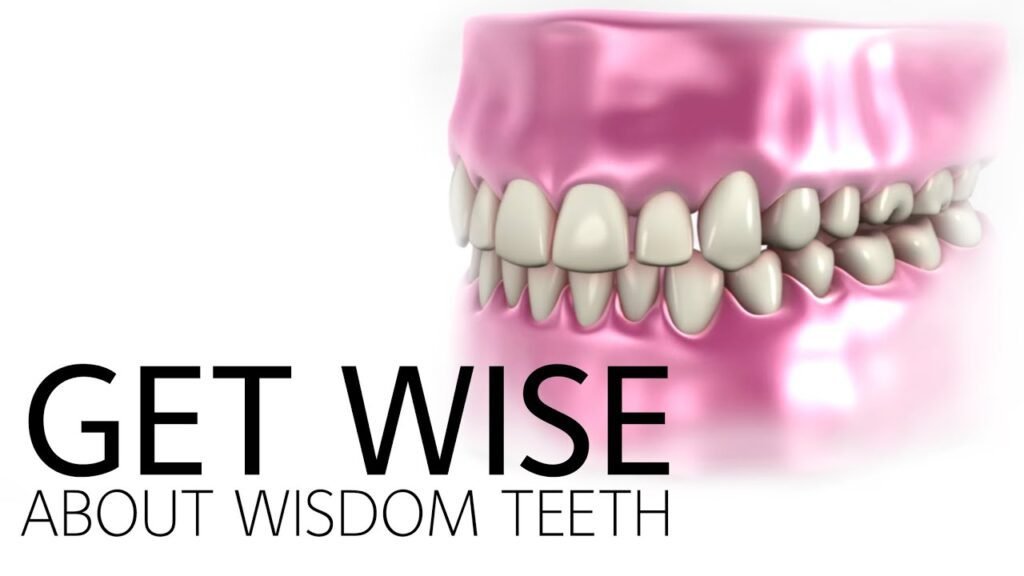Understanding the Arrival of Your Wisdom Teeth

Have you ever wondered where your wisdom teeth come in and why they can cause so much trouble? Wisdom teeth, also known as third molars, typically emerge in the late teens or early twenties. For some people, these teeth can cause overcrowding, pain, and even infection. In this article, we will explore the reasons behind the emergence of wisdom teeth, the potential problems they can cause, and the options for dealing with them. Whether you're curious about your own wisdom teeth or facing the prospect of their extraction, this article will provide valuable insight into this common dental issue.
How can you determine if your wisdom teeth are impacted?
If you're wondering if your wisdom teeth are impacted, look out for redness and swelling of the gums around the impacted tooth, swollen lymph nodes in the neck, an unpleasant taste when biting down on or near the area, and a visible gap where a tooth did not emerge. These are all signs that your wisdom teeth may be impacted and it's important to consult with a dentist for further evaluation and treatment.
Where do your wisdom teeth erupt from?
Wisdom teeth, also known as third molars, emerge at the back of your gums and are the final set of teeth to develop. Typically, individuals have four wisdom teeth, with one located in each corner of the mouth. These molars usually make their appearance during the late teenage years or early twenties, completing the set of adult teeth.
As the last teeth to come through, wisdom teeth can sometimes cause discomfort or complications if there isn't enough space for them to properly align. It is important to monitor their growth and consult with a dentist if any issues arise. Keeping an eye on the development of your wisdom teeth can help prevent potential oral health problems in the future.
What is the average time it takes for a wisdom tooth to fully erupt?
It typically takes around 6 months to 1 year for a wisdom tooth to fully erupt. However, the timeline can vary depending on factors such as the position of the tooth, the individual's oral health, and the presence of any complications. Regular dental check-ups and X-rays can help monitor the progress of wisdom tooth eruption and ensure any issues are addressed promptly. If you experience any pain or discomfort during this process, it's important to consult with a dentist to determine the best course of action.
Navigating the Impact of Wisdom Teeth on Your Oral Health
Are you experiencing discomfort or pain in your mouth? It could be due to your wisdom teeth. These third molars, which typically appear in your late teens or early twenties, can cause a variety of oral health issues if they become impacted or grow in at an angle. From crowding and misalignment to infection and decay, the impact of wisdom teeth on your oral health can be significant. It's important to regularly visit your dentist for check-ups and x-rays to monitor the growth and positioning of your wisdom teeth, and to address any potential issues before they become more serious.
Navigating the impact of wisdom teeth on your oral health is crucial for maintaining a healthy smile. By understanding the potential problems associated with these third molars and staying proactive with dental care, you can minimize the negative impact on your oral health. Whether it's through regular check-ups, early intervention, or even wisdom teeth removal, taking the necessary steps to address any potential issues can help preserve the health and appearance of your teeth and gums for years to come.
Preparing for the Arrival of Your Wisdom Teeth: What to Expect
Preparing for the arrival of your wisdom teeth can be both exciting and nerve-wracking. As these third molars begin to emerge in your late teens or early twenties, it's important to know what to expect. From potential discomfort and swelling to the possibility of impacted teeth, being informed about the process can help alleviate any anxiety. While some people may experience no issues at all, others may require extraction due to overcrowding or improper growth. By being aware of the potential challenges and consulting with your dentist, you can better prepare for the arrival of your wisdom teeth and ensure a smooth transition into adulthood.
Wisdom Teeth 101: A Comprehensive Guide to Understanding Their Arrival
Wisdom teeth, also known as third molars, typically emerge in the late teens or early twenties. These teeth are the last to develop and often cause discomfort due to lack of space in the mouth. Understanding the signs and symptoms of wisdom teeth eruption can help individuals better prepare for their arrival.
From jaw pain to swollen gums, there are various indicators that wisdom teeth are making their debut. It is important to consult with a dentist to determine the best course of action, whether it be monitoring the teeth as they come in or scheduling an extraction. By staying informed and proactive, individuals can navigate the process of wisdom teeth eruption with ease and minimize any potential complications.
In conclusion, understanding the role of wisdom teeth in our oral health is crucial. These third molars may not always have a functional purpose in modern humans, but they can still cause issues if not properly monitored. Knowing where your wisdom teeth come in and being proactive about their care can help prevent potential problems down the road. So, next time you feel those familiar pains in the back of your mouth, remember the importance of staying informed and seeking professional advice to maintain a healthy smile.